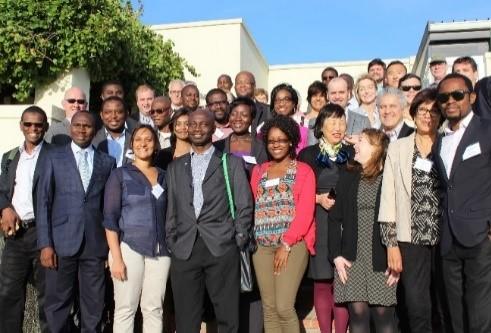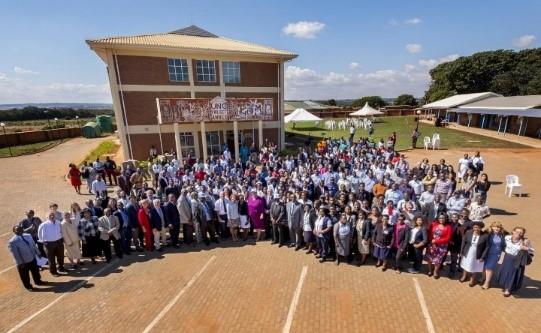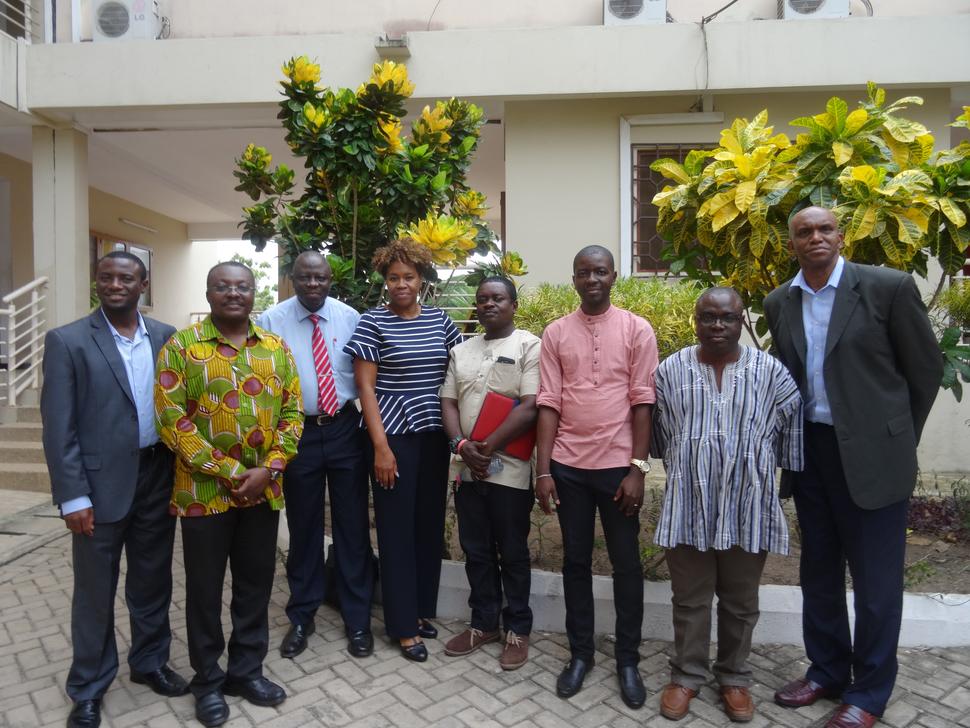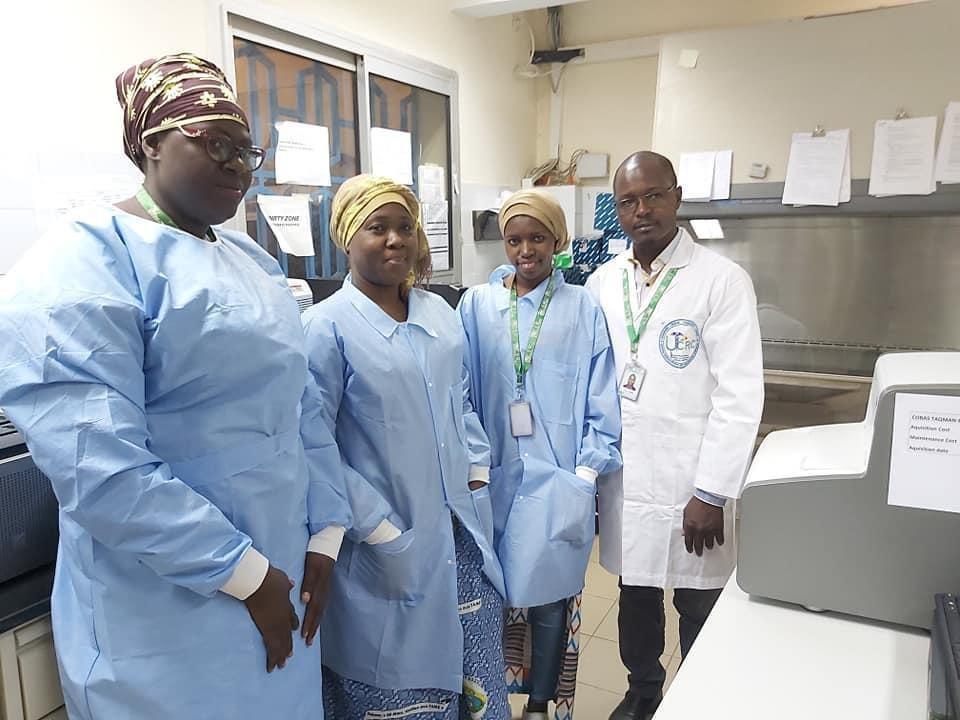NCI Awards 4 Grants to Strengthen Institutional Capacity for Cancer Research in LMICs
, by Sudha Sivaram, Ph.D., M.P.H.
Workforce development for cancer research is a central component of the National Cancer Institute’s (NCI) mission. This is facilitated by initiatives that support research education, fellowships, early career development, and institutional capacity building across a range of learning and career stages. In addition, the National Cancer Act of 1971, which commemorates its 50th anniversary this year, notes the value of global research and training investments. This is salient now because while cancer death rates have been decreasing in the United States, this is not the case in many other countries. It is estimated by 2040, 69% of global cancer deaths will occur in low-and middle-income countries. The NCI Center for Global Health (CGH)’s strategic plan outlines several goals and priorities to advance global cancer research and control with particular focus on LMICs. Supporting global cancer research training is one of our primary goals. Over the past decade, the CGH has facilitated research training and education of foreign scientists in several NCI programs such as the summer curriculum for cancer prevention, training in implementation science, and the short-term scientist exchange program.
As a part of our continued commitment to support cancer research training that enables equitable impactful global scientific collaboration, we have recently launched a new training initiative to strengthen institutional capacity in low-and middle-income countries (LMICs) for global cancer research. Utilizing the D43 funding mechanism, this initiative sought applications from US institutions to build on their partnerships with LMIC institutions to address cancer research needs in these LMICs and build scientific expertise and leadership skills to conduct innovative and collaborative global cancer research. This initiative was first announced in April 2020 with four grants recently awarded.
Bidirectional Training to Enhance Cancer Research Capacity in Africa
Dana Farber Cancer Institute, Boston/Institut Pour La Formation et la Recherche en Urologie, Dakar
The proposed training program involves bilateral interactions between mentors and trainees in sub-Saharan Africa (SSA) and the US and will develop strategic and operational capacity that will generate new knowledge about the determinants of cancer risk and outcomes and improve effectiveness of strategies for reducing risk and improve outcomes. The specific aims of the training program are to develop and implement an educational and career development program that will maximize the rigor of research being conducted in SSA; recruit and train individuals who can build sustainable careers in cancer research; and assess the impact of this training program on the career outcomes of trainees and participants. Trainees will fall into two groups. First, a Principal Investigator (PI) Track will be implemented for doctoral level investigators who will be trained to demonstrate leadership in independent and collaborative research. Second, a Project Management (PM) Track will be implemented to support the conduct of research. Participants in the PM Track will be qualified to support a variety of research projects within SSA health and regulatory settings.
Malawi Cancer Outcomes Research Program (M-CORP)
University of North Carolina, Chapel Hill /University of Malawi College of Medicine, Blantyre
The M-CORP is led by the University of North Carolina in conjunction with the University of Malawi College of Medicine and in collaboration with other national and international institutions and training programs. M-CORP leverages numerous network relationships, a strong cancer research environment, and synergizes with other successful Malawi and U.S. research training activities, to develop promising early-career investigators and catalyze a ‘next generation’ of independent Malawian cancer scientists. The specific aims of the program are to support investigators who can pursue independent research careers by 1) establishing a robust curriculum and training opportunities across the continuum of cancer outcomes research specific to the Malawian environment and research priorities; 2) supporting advanced degrees; and 3) overcoming obstacles to research independence by providing post-doctoral opportunities including mentored pilot grants.
Ghana IntegRative Approach to Cancer ResEarch Training: The Grace Program
H. Lee Moffitt Cancer Center and Research Institute, Tampa / University of Ghana, Accra
To address the goals set forth in Ghana’s national cancer plan, Moffitt Cancer Center (MCC) faculty are collaborating with the Korle-Bu Teaching Hospital within the University of Ghana (UG), the Ghana College of Physician and Surgeons (GCPS), University of Ghana Medical School (UGMS), School of Public Health (UGSPH), and Nursing School. The overall goal of this proposal is to develop a new generation of multidisciplinary global health cancer researchers at MCC and UG to strengthen and expand institutional capacity to conduct cancer research. The specific aims of the program are to: 1. Build and implement cancer research training and capacity (lectures, workshops and an applied research experience); 2. Fund Team-Science Research, and 3. Transfer and sustain the Ghana cancer research training program. At the end of five years, the project will have trained a new generation of fellows and junior faculty (~125-150) and embedded into the Ghana medical education system a sustainable cancer research training program to support continued cancer research growth in Ghana.
Infection-Associated Cancer Research Training Program in Mali
Northwestern University, Chicago/ University of Sciences, Techniques, and Technologies of Bamako, Bamako
The Northwestern University (NU) and Mali’s University of Sciences, Techniques, and Technologies of Bamako (USTTB)’s Infection-Associated Cancer (NM-IAC) Research Training Program seek to address control of the four most common infection-associated cancers (IACs)- cervical, liver, gastric and lung cancers- in Mali. The specific aims of the program are to (1) Train two PhD-level cancer epidemiologists, each with a focus on one of the four IACs and capable of (i) designing and conducting population-based cancer epidemiology studies; (ii) developing protocols for biospecimen collection, processing, and storage; and (iii) evaluating population-specific biomarkers for use in screening and identifying “at-risk” populations; and Two master’s-level molecular pathologists, one biostatistician, and one bio-informatician, capable of (i) collecting and managing clinical, laboratory, and population-level specimens and data; (ii) using virtual modalities for education, mentoring and telepathology for distance microscopic diagnostics and training; and (iii) performing biostatistical/bioinformatics analyses, generated from population-level studies; (2) Enhance capacity of early career faculty to conduct interdisciplinary research of IACs through workshops and mentored research projects led by the scientists trained in Aim 1; and (3) Optimize engagement of public health scientists, clinicians, and health system stakeholders through workshops and seminars to disseminate knowledge about novel epidemiological and biomarker tools and strategies.
A well-trained cancer research workforce is essential to address cancer control challenges and realize scientific opportunities in LMICs. Diversifying the cancer research workforce is a key element of the recently initiated NCI Equity and Inclusion Program. This initiative will allow the NCI to provide sustained support for a diverse and coordinated global cancer research training community, leverage increasing global oncology activities at the NCI-designated cancer centers, and provide important opportunities for collaboration, professional development, and sharing of resources. It will also strengthen global cancer research training at NCI by synergizing with other initiatives at NCI and the Fogarty International Center.
We envision this training program to be a foundational initiative for global cancer research training at the NCI. The experiences of these teams along with the anticipated second cohort of awardees will inform further efforts to develop and expand NCI-supported global cancer research training opportunities.



